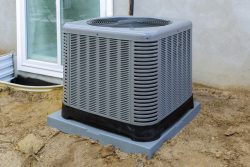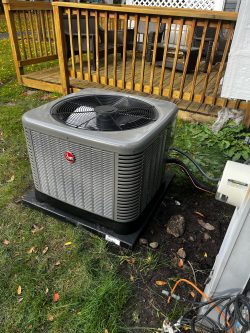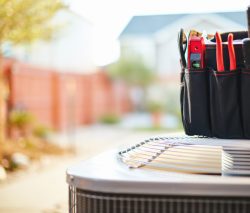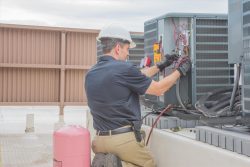How To Navigate The Financial Landscape Of Roselle IL Heating System Replacement
Heating system replacement is a significant decision for homeowners. The availability is necessitated by factors ranging from aging equipment to evolving energy efficiency standards. As you embark on this journey, it is crucial to navigate the complex landscape of cost considerations. Join us as we break down the various financial aspects associated with Roselle IL heating system replacement. We aim to help you make informed decisions and optimize your investment.
Upfront Costs and Budgeting
The initial investment required for the replacement is a key consideration that homeowners must grapple with. Different types of HVAC systems, such as furnaces, boilers, or heat pumps, come with varying upfront costs. Additionally, the scope of the project, including any necessary ductwork or system upgrades, can influence the overall expenditure. Our quotation involves accounting for the cost of the new HVAC systemS and factors in installation expenses, potential heating system repair to existing infrastructure. Also, we set out any additional fees associated with permits or compliance with local building codes. We guide you to establish comprehensive budget to avoid unpleasant financial surprises and plan for a smooth transition to new systems.
Energy Efficiency and Long-Term Savings
While upfront costs are a significant consideration, it is equally important to evaluate the long-term financial implications of the heating system replacement. Modern systems often boast higher energy efficiency ratings, translating to potential savings on monthly utility bills over the lifespan. Energy-efficient systems are not only environmentally responsible but also financially advantageous in the long run. Homeowners should assess the Annual Fuel Utilization Efficiency (AFUE) or Heating Seasonal Performance Factor (HSPF) of prospective systems. Higher ratings indicate better efficiency, potentially offsetting the initial investment through reduced energy consumption and lower operating costs over time.
Rebates and Incentives
Many governments, utility companies, and environmental organizations offer rebates and incentives to encourage homeowners to upgrade to more energy-efficient heating systems. These financial perks can significantly offset the overall cost of replacements. Before committing to a particular model, homeowners should research available rebates and incentives in their region. These programs may include tax credits, cash rebates, or subsidized financing options. Leveraging these opportunities not only makes the investment more affordable but also contributes to a sustainable and energy-conscious choice.
Lifecycle Costs and Maintenance
In evaluating the cost considerations for HVAC replacement, it is essential to look beyond the initial purchase and installation expenses. A reliable HVAC contractor will consider the lifecycle costs, which encompass ongoing maintenance, repairs, and the expected lifespan of the chosen model. Some systems may have higher upfront costs but offer greater reliability and require less frequent maintenance, resulting in lower overall costs over their operational life. On the other hand, less expensive systems might incur higher maintenance expenses or have a shorter lifespan.




